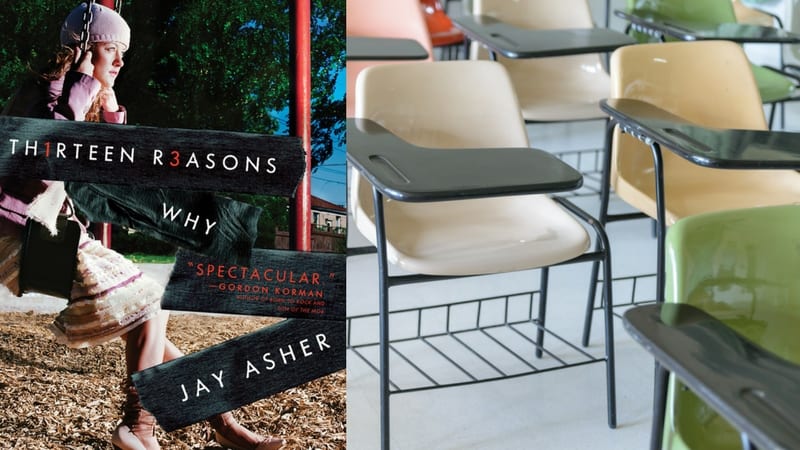Chances are, if you work with teenagers, by now you’ve heard about the Netflix series 13 Reasons Why. Based on the novel by Jay Asher, the show is about a teenage girl who commits suicide, leaving behind a series of cassette tapes for various people explaining why they are responsible for her death. Full disclosure: I’ve read the book but not watched the show, but I hear it’s the same story played out by lots of attractive young people.
I’m an English teacher, and I believe that stories not only reflect who we are as people, but that they have the power to shape who we become. And, at the risk of sounding like a book-burning zealot or, at best, a Ms. Stephanie Crawford, our young people are especially vulnerable to the messages they receive. So I think this show is incredibly important, and I’m conflicted about the message it’s giving my kids.
I’ve seen a lot of kids who are fans of the show reflecting on their own actions, which is amazing. The novel/show makes the point that the way we treat others has consequences, and all of us have the power to do serious psychological damage. No matter how often teachers and administrators and counselors preach that message, it never seems to get through, so I’m grateful to Netflix for bringing it home to my kids.
I think this show has the power to actually reduce bullying, and I’ve seen a real increase in kids standing up for each other when other kids are mean. There’s also the fact that now a lot of my kids know what a cassette tape is, making me feel slightly less ancient when I reference anything from the 80s and 90s.
I do want my students to see that their words are powerful, and that they have an effect on others. But I also have a real problem with the idea that these 13 people are to blame for the fictional Hannah Baker’s suicide. Because in the end, I think that Hannah’s suicide comes down to one person; Hannah herself.
I think there’s an element of personal responsibility that’s lost in the novel’s eagerness to pin blame on those who have mistreated her. (I’m not advocating the demonization of those who commit suicide. Depression is often a fatal illness. It’s the idea that she had to kill herself because people were mean to her that gives me pause.)
Telling teenagers that they are completely responsible for the mental welfare—and the survival—of all their classmates is maybe a bit much to put on the shoulders of 13-year-olds. We absolutely need to teach them to treat others decently. But teaching them that they should be nice because otherwise someone might kill themselves, seems a little heavy handed.
That’s not my biggest problem with the show, however. My main concern is the fact that it posits suicide as the ultimate “eff you” to all the people you leave behind. Hannah uses suicide as a weapon of revenge, an “I’ll show them” that is astonishingly effective.
This message terrifies me. Teenagers are often angry and almost always impulsive. Teachers have already seen an epidemic of self-harm because kids see it as a way to show that they are angry or in pain. I truly worry that, if my kids believe that suicide is an effective way to get their point across, we’ll see an increase in suicide attempts. God knows, enough kids come up with that idea on their own. They don’t need Netflix showing them how well it works.
If 13 Reasons Why can encourage my kids to pick up a book and read, awesome. If it has the added benefit of decreasing bullying, then that’s amazing. But my classes will be having some serious conversations about the messages it sends regarding suicide and personal responsibility.

